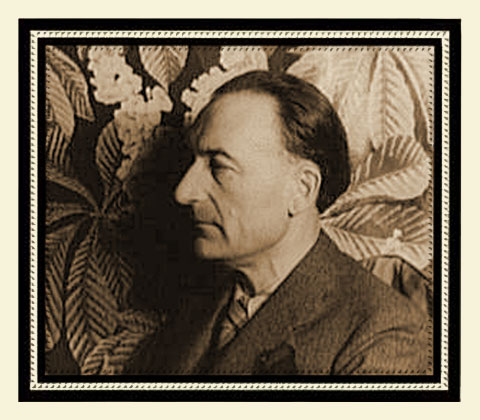Saint-Julien Chapteuil, France, 1885 — Paris, 1972
Novelist
Louis Henri Jean Farigoule studied science and philosophy at the École Normale Supérieure in Paris and was philosophy professor from 1909 to 1919, before devoting himself to literature. In his vast oeuvre he expressed his unanimist philosophy, according to which human beings are social creatures, and not individuals. The doctrine was the fruit of having taken part in the utopic group called Abbaye de Créteil (1906), which also included other friends who were close to Stefan Zweig, such as René Arcos, Georges Duhamel, Luc Durtain and Léon Balzaguette. They were also pro-European, internationalists, pacifists and defenders of human rights, and were opposed to the commercialization of the spirit and advocated the shunning of trends – the same ideals as Zweig, which is why he kept such strong and long-lasting friendships with them. None except Balzaguette got politically engaged; they were all essentially humanists.
Jules Romains’ unanimist vision appears in his monumental study of French society between 1908 and 1933, Hommes de bonne volonté, a romantic tome in 27 volumes. He was a member of the Académie Française and president of the International PEN Club, elected in 1936 at the congress in Buenos Aires attended by Zweig. He presided over the entity during the difficult period leading up to and during the Second World War. With the invasion of France, he took refuge in the USA initially, moving to Mexico in 1941.
The vast Zweig-Romains correspondence began in 1909 and ended on 9th February 1942, three days before the Zweigs’ suicide. Jules Romains was the only one of the old friends to meet Stefan and Lotte during the American summer of 1941, and recorded his surprise at the couple’s difficulties.
On Zweig’s 60th birthday, at the request of his American publisher Ben Huebsch, Jules Romains wrote the text for a small brochure tribute to his friend. Stefan Zweig, grand européen was published in New York in a limited edition, by publishers Maison de France, which had also released the first French edition of Brazil, Land of the Future. The copy that Romains autographed for Zweig was in a prominent place on his desk when he killed himself. A dedication to publisher Abrahão Koogan had been added.
Address listed: Hotel Mayflower, Central Park West 61st St. New York. Tel. Columbus 5-0060; Monroe Towers Hotel, 310 Collins Ave. Miami Beach, Florida
